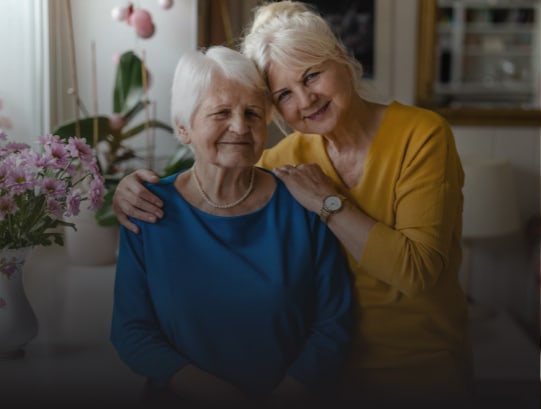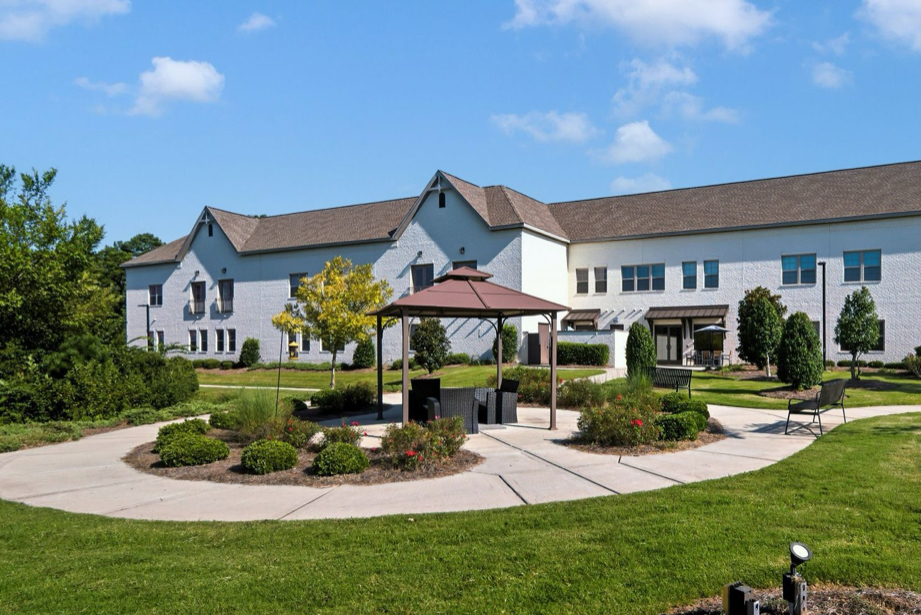Key Takeaways
- Regular social interaction can slow cognitive decline and improve mood for people with Alzheimer’s.
- Group activities and one-on-one conversations provide mental stimulation that supports brain health.
- Memory care communities offer structured socialization programs designed for different stages of Alzheimer’s.
- Family visits and connections remain important throughout the progression of the condition.
How Social Connection Supports Brain Health
When your loved one receives an Alzheimer’s diagnosis, you might wonder how to support their well-being as the condition progresses. Social interaction becomes even more important during this time, offering both comfort and cognitive benefits that can help maintain their connection to the world around them. Specialized memory care programs create structured opportunities for these vital connections.
Regular socialization can help slow cognitive decline, reduce isolation, and improve overall quality of life for people living with Alzheimer’s. Understanding how social connections support brain health can help you make informed decisions about care options.
Why Social Connection Matters for Alzheimer’s Care
Social interaction provides mental exercise that can help maintain cognitive function longer. When your loved one engages with others, their brain works to process conversations, recognize faces, and respond appropriately.
Regular socialization also helps reduce feelings of isolation and depression that often accompany Alzheimer’s. Assisted living communities understand this need and create opportunities for meaningful connections throughout each day. The Alzheimer’s Association emphasizes how meaningful engagement can provide stability during uncertain times.
The Brain Benefits of Staying Connected
Social activities stimulate multiple areas of the brain at once. Your family member uses memory, language, and reasoning skills during conversations and group activities. This mental workout can help preserve abilities and slow the progression of symptoms. Memory care programs specifically design activities to maximize these cognitive benefits.
Types of Social Activities That Make a Difference
Group Activities and Programs
Structured group activities provide safe opportunities for interaction. Music therapy, art projects, and gentle exercise classes allow residents to connect while enjoying shared experiences. Studies published in research journals demonstrate how music therapy can improve the quality of life and social interaction for older adults.
These programs are designed to match different ability levels. Staff members guide activities to help everyone participate successfully.
One-on-One Interactions
Personal conversations with caregivers and family members offer intimate social connections. These interactions can happen during meals, walks, or quiet moments together. Even brief conversations about familiar topics can provide comfort and mental stimulation. Your presence and attention matter more than the length of the visit.
How Memory Care Communities Support Socialization
Memory care communities create environments that encourage natural social interactions. Common areas are designed to feel welcoming and comfortable for residents at all stages of life. These communities offer structured activities and experiences that promote both individual engagement and group participation.
Trained staff members understand how to engage people with Alzheimer’s effectively. They know when to offer gentle encouragement and when to provide quiet support.
Structured Daily Routines
Regular schedules help residents feel secure and ready to participate. Meal times, activity periods, and quiet hours create natural opportunities for connection. Predictable routines reduce anxiety and make social interaction more comfortable. Your loved one can focus on enjoying the company of others rather than worrying about what comes next.
Maintaining Family Connections During Alzheimer’s

Your visits remain meaningful even as Alzheimer’s progresses. While your loved one may not always remember recent conversations or recognize every detail, they often still feel the emotional connection your presence brings.
Simple gestures—like holding hands, sharing a smile, or saying familiar phrases—can offer reassurance and joy. Activities such as looking through family photo albums, listening to favorite songs, or enjoying a meal together can create positive, grounding moments that strengthen emotional bonds.
If caregiving responsibilities become overwhelming, respite care services can provide essential relief. These short-term stays allow family caregivers to rest and recharge while ensuring that their loved one continues to receive compassionate attention, structured activities, and social engagement.
Making Visits More Meaningful
Focus on being present rather than testing memory or correcting confusion. Conversations don’t have to revolve around facts or timelines—what matters most is the connection.
Share stories about happy times, talk about beloved family traditions, or bring up topics your loved one has always enjoyed. Bringing familiar objects, photos, or music can help spark recognition and comfort. Even if words fade, the feelings of love, safety, and belonging often remain strong.
Take the Next Step Toward Supportive Care
Socialization plays an important role in maintaining the quality of life for people with Alzheimer’s. The right care environment can provide the social connections your loved one needs to thrive.
At Somerby Edgewater, our memory care programs are designed to nurture these meaningful connections every day. Through small-group activities, sensory engagement, and personalized routines, we create social experiences that align with each resident’s unique abilities and interests. Our compassionate team understands the importance of emotional connection and strives to provide moments of joy, comfort, and familiarity.
Contact us today to schedule a tour and learn more about how our community supports families navigating Alzheimer’s care.










